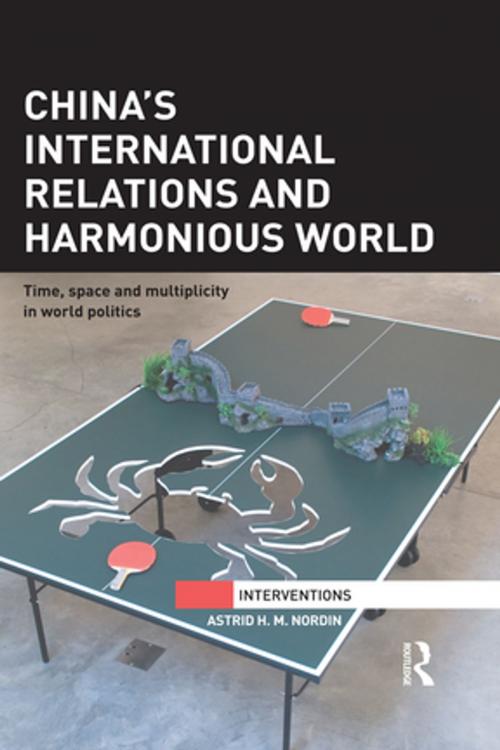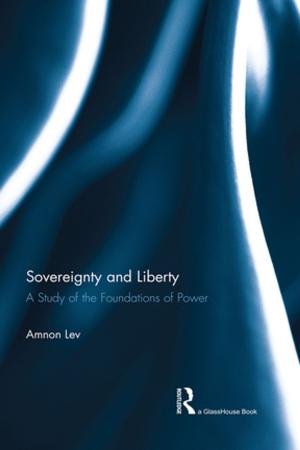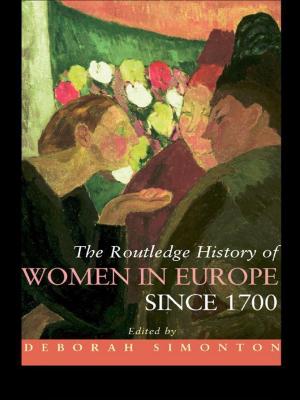China's International Relations and Harmonious World
Time, Space and Multiplicity in World Politics
Nonfiction, Social & Cultural Studies, Political Science| Author: | Astrid H. M. Nordin | ISBN: | 9781317370024 |
| Publisher: | Taylor and Francis | Publication: | April 28, 2016 |
| Imprint: | Routledge | Language: | English |
| Author: | Astrid H. M. Nordin |
| ISBN: | 9781317370024 |
| Publisher: | Taylor and Francis |
| Publication: | April 28, 2016 |
| Imprint: | Routledge |
| Language: | English |
As scholars and publics look for alternatives to what is understood as a violent Western world order, many claim that China can provide such an alternative through the Chinese dream of a harmonious world. This book takes this claim seriously and examines its effects by tracing the notion across several contexts: the policy documents and speeches that launched harmony as an official term under previous president Hu Jintao; the academic literatures that asked what a harmonious world might look like; the propaganda and mega events that aimed to illustrate it; the online spoofing culture that is used to criticise and avoid "harmonization"; and the incorporation of harmony into current president Xi Jinping’s "Chinese dream".
This book finds contemporary Chinese society and international relations saturated with harmony. Yet, rather than offering an alternative to problems in "Western" thought, it counter-intuitively argues that harmony has not taken place, is not taking place, and will not take place. The argument unfolds as a contribution to wider debates on time, space and multiplicity in world politics. Offering analysis of the important but understudied concept of harmony, Nordin provides new and creative insights into wider contemporary issues in Chinese politics, society and scholarship.
The book also suggests a creative and novel methodology for studying foreign policy concepts more broadly, drawing on critical thinkers in innovative ways and in a new empirical context. It will be of interest to students and scholars of IR, Chinese foreign and security policy and IR theory.
As scholars and publics look for alternatives to what is understood as a violent Western world order, many claim that China can provide such an alternative through the Chinese dream of a harmonious world. This book takes this claim seriously and examines its effects by tracing the notion across several contexts: the policy documents and speeches that launched harmony as an official term under previous president Hu Jintao; the academic literatures that asked what a harmonious world might look like; the propaganda and mega events that aimed to illustrate it; the online spoofing culture that is used to criticise and avoid "harmonization"; and the incorporation of harmony into current president Xi Jinping’s "Chinese dream".
This book finds contemporary Chinese society and international relations saturated with harmony. Yet, rather than offering an alternative to problems in "Western" thought, it counter-intuitively argues that harmony has not taken place, is not taking place, and will not take place. The argument unfolds as a contribution to wider debates on time, space and multiplicity in world politics. Offering analysis of the important but understudied concept of harmony, Nordin provides new and creative insights into wider contemporary issues in Chinese politics, society and scholarship.
The book also suggests a creative and novel methodology for studying foreign policy concepts more broadly, drawing on critical thinkers in innovative ways and in a new empirical context. It will be of interest to students and scholars of IR, Chinese foreign and security policy and IR theory.















